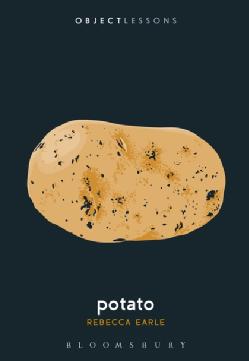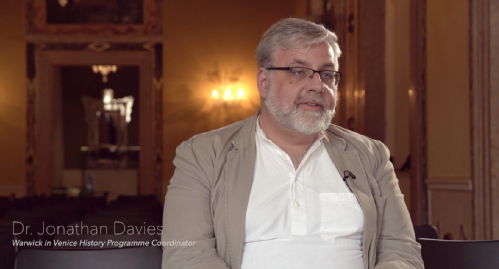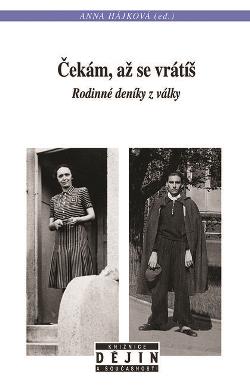History News
Potato

Potato (Object Lessons), published by Bloomsbury, is a new publication from Professor Rebecca Earle.
Object Lessons is a series of short, beautifully designed books about the hidden lives of ordinary things.
Baked potatoes, Bombay potatoes, pommes frites . . . everyone eats potatoes, but what do they mean? To the United Nations they mean global food security (potatoes are the world's fourth most important food crop). To 18th-century philosophers they promised happiness. Nutritionists warn that too many increase your risk of hypertension. For the poet Seamus Heaney they conjured up both his mother and the 19th-century Irish famine.
What stories lie behind the ordinary potato? The potato is entangled with the birth of the liberal state and the idea that individuals, rather than communities, should form the building blocks of society. Potatoes also speak about family, and our quest for communion with the universe. Thinking about potatoes turns out to be a good way of thinking about some of the important tensions in our world.
Object Lessons is published in partnership with an essay series in The Atlantic.
Details of all the monographs and edited collection of the Warwick University History Department's current academic staff are available online, and the details of all the monographs and edited collection of the Warwick University History Department's emeritus academic staff are also available online.
Open Letter from Professor Rebecca Earle to Warwick History Students

Dear Warwick history students,
I was intending to write to you tomorrow to let you know that after five years serving as an outstanding head of department, Professor Dan Branch will be stepping down to become the Chair of the Faculty of Arts. I’ll be taking over as department head, and I wanted to say hello.
The need to write to you has however become much more urgent.
I am sure you are aware of the continuing and distressing situation resulting from last year's group chats. You may have seen the University’s official statement, as well as the multiple reports in the press. The department is deeply concerned about the impact of these recently-reported events on our community.
We in the department have tried hard to provide as much moral and academic support as we can to the individuals affected by this case. We will continue to work to limit its impact on the studies of the women involved, and also to provide the necessary structures to support this. This has been a priority since the incidents first came to light.
We also recognise the need to address the challenges posed to the department as a whole.
Although the department had absolutely no input into the disciplinary cases, and although we are bound by a legal requirement to uphold the confidentiality of all students involved, we feel a pressing need to make sure that our students have a chance to fully express their views on this case.
We are currently in discussion with the University with the aim of organising a series of meetings for you to meet with representatives from the administration who can answer questions about the situation and listen to your concerns. Your legitimate and very understandable unhappiness need to be addressed right now. We will also work to design the necessary mechanisms to ensure that next academic year is not blighted by the after-effects of the toxic events of last year.
When the case first received public attention last summer, Dan Branch wrote to all of you to stress the department’s commitment to supporting any student who experiences misogyny, racism, homophobia or any other form of prejudice. Any such behaviour is unacceptable and runs contrary to the ethos of the department. This commitment remains central to our principles as a community. Please contact your personal tutor or myself if there is anything that you wish to bring to our attention, whether that be something that you have been subjected to yourself or have witnessed.
I’ll be writing again as soon as I have details about the meetings we are hoping to set up.
Many thanks,
Rebecca Earle
Warwick in Venice History Programme
See the new video of staff and students describing the Warwick in Venice History Programme, one of the exciting opportunities available to single-honours history students at Warwick.
 |
The Right to Dress: Sumptuary Laws in a Global Perspective, c.1200-1800

The Right to Dress: Sumptuary Laws in a Global Perspective, c.1200-1800, edited by Professor Giorgio Riello (University of Warwick) and Professor Ulinka Rublack (University of Cambridge), is a new edited volume published by Cambridge University Press.
This is the first global history of dress regulation and its place in broader debates around how human life and societies should be visualised and materialised. Sumptuary laws were a tool on the part of states to regulate not only manufacturing systems and moral economies via the medium of expenditure and consumption of clothing but also banquets, festivities and funerals. Leading scholars on Asian, Latin American, Ottoman and European history shed new light on how and why items of dress became key aspirational goods across society, how they were lobbied for and marketed, and whether or not sumptuary laws were implemented by cities, states and empires to restrict or channel trade and consumption. Their findings reveal the significance of sumptuary laws in medieval and early modern societies as a site of contestation between individuals and states and how dress as an expression of identity developed as a modern 'human right'.
Details of all the monographs and edited collection of the Warwick University History Department's current academic staff are available online, and the details of all the monographs and edited collection of the Warwick University History Department's emeritus academic staff are also available online.
Beyond the Barricades: Government and State-Building in Post-Revolutionary Prussia, 1848-1858

Beyond the Barricades by Dr Anna Ross is an original study of government after the 1848 revolutions. It focuses on the state of Prussia, where a number of conservative ministers sought to learn lessons from their experiences of upheaval and introduce a wave of reform in the 1850s. Using extensive archival research, the work explores Prussia's entry into the constitutional age, charting initiatives to transform criminal justice, agriculture, industry, communications, urban life, and the press. Reform strengthened contact with the Prussian population, making this a classic episode of state-building, but Beyond the Barricades seeks to go further. It makes a case for taking notice of government activity at this particular juncture because the measures endorsed by conservative statesmen in the 1850s sought to remove the feudal intermediaries that had lingered long into the nineteenth century and replace them with an array of government institutions, legal regimes, and official practices. In sum, this book recasts the post-revolutionary decade as a period which saw the transition from an old to a new world, pivotal to the making of modern Prussia and ultimately, modern Germany.
Details of all the monographs and edited collection of the Warwick University History Department's current academic staff are available online, and the details of all the monographs and edited collection of the Warwick University History Department's emeritus academic staff are also available online.
Race and Riots in Thatcher's Britain

Race and Riots in Thatcher's Britain by Dr Simon Peplow will be published on Friday 25th January 2019 by Manchester University Press.
This powerful and original book locates the anti-police violence that spread across England in 1980-1 within a longer struggle against racism and disadvantage faced by black Britons, which had seen a growth in more militant forms of resistance since the Second World War. It explains these disturbances as 'collective bargaining by riot' - attempts to increase political inclusion by this marginalised group. Through case studies of Bristol, Brixton and Manchester, the book explores the actions of community organisations in the aftermath of disorders. Highlighting the political activities of black Britons and the often-problematic reliance upon 'official' sources when forming historical narratives, it demonstrates the contested value awarded to public inquiries - contrastingly viewed by black Britons as either a method for increased political participation or simply a governmental diversionary tactic.
Details of all the monographs and edited collection of the Warwick University History Department's current academic staff are available online, and the details of all the monographs and edited collection of the Warwick University History Department's emeritus academic staff are also available online.
I Am Waiting For You to Come Back: Family Wartime Diaries (Čekám až se vrátíš. Rodinné deníky z války)

I Am Waiting For You to Come Back: Family Wartime Diaries (Čekám až se vrátíš. Rodinné deníky z války) is a new book edited by Dr Anna Hájková.
In the six months he spent in hiding in Prague prior to his arrest in August 1944, the Jewish Communist resistance fighter, Jany Lebovič, kept a diary. Jany was deported to Auschwitz and shot upon arrival. At the time of Jany’s arrest, the Nazis deported the mother of Jany’s friend, Pavla Hájková, for supporting this resistance group. Pavla was liberated from a Ravensbrück satellite camp, and throughout the months following her liberation, Pavla kept a diary testifying to her difficult return trip through a destroyed Germany to Prague, her new beginning in Prague, and her slow realization that her husband would never return. For Jany and Pavla, diary-writing represented a means of communicating with their beloved partners, from whom they were separated by the Nazis. These unique documents speak about the Holocaust, concentration camps, Communist resistance, and love in wartime. This edition of these two family diaries is accompanied by the editor’s historical introduction and critical commentary, memories of Pavla’s and Jany’s relatives, and photographs from family archives.
Details of all the monographs and edited collection of the Warwick University History Department's current academic staff are available online, and the details of all the monographs and edited collection of the Warwick University History Department's emeritus academic staff are also available online.
"Le Grand Kilo" - expert comment by Dr James Poskett

Dr James Poskett, Assistant Professor in the History of Science and Technology at the Warwick University History Department, offers an expert comment on the vote at the International Bureau of Weights and Measures to decide whether the kilogramme should cease to be benchmarked against "Le Grand Kilo," a physical object stored under three bell jars in a French vault.
For the full expert comment, please see https://warwick.ac.uk/newsandevents/expertcomment/le_grand_kilo.
